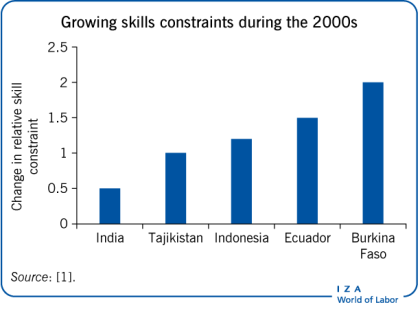Elevator pitch
Skills are widely regarded as being necessary for boosting productivity, stimulating innovation, and creating new jobs, while skill mismatches are often cited as being responsible for a lack of dynamism in the labor market. However, heavy investments in technical and vocational training programs are seldom a “silver bullet.” Recent evidence on skill building not only points to the core importance of foundational skills (both cognitive and social) for success in the labor market, but also emphasizes how jobs themselves can lead to learning and shape social competencies that, in turn, ignite innovation and create more jobs.
Key findings
Pros
Basic cognitive and social skills are necessary for productive employment, and often acquired early in life.
Many technical and social skills can be built and developed through experience in the workplace and lead to sizable returns, especially during formative years in the labor market.
Pre-employment and on-the-job training can carry positive returns if they address market failures in the education and training system, are closely combined with work experience, and governed by a flexible and modern institutional structure.
More advanced skills can boost job creation by igniting innovation when countries are caught in traps of low skills and low productivity.
Cons
Pre-employment and on-the-job training alone are unlikely to solve a lack of dynamism in the jobs market.
Skill mismatches are most often assumed to originate on the supply side, with education and training systems being tasked to reduce the misfit; but this assumption need not be correct, as the incentives the system reacts to can be the source of the mismatch.
Even when skill mismatches are supply-side driven, the technical and vocational training systems in many countries lead to low returns, distance from private sector demand, and inequitable access.
Schools and training centers rarely include the formation of social skills as an explicit goal.
